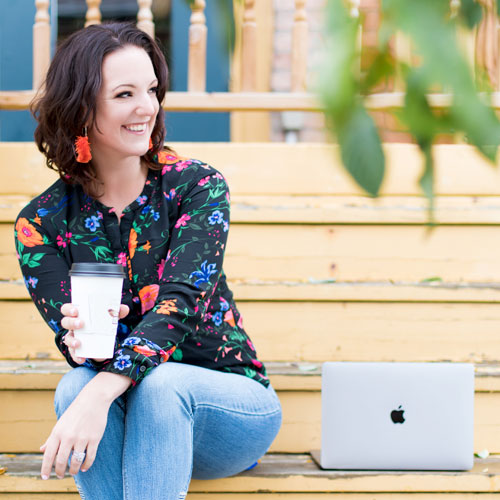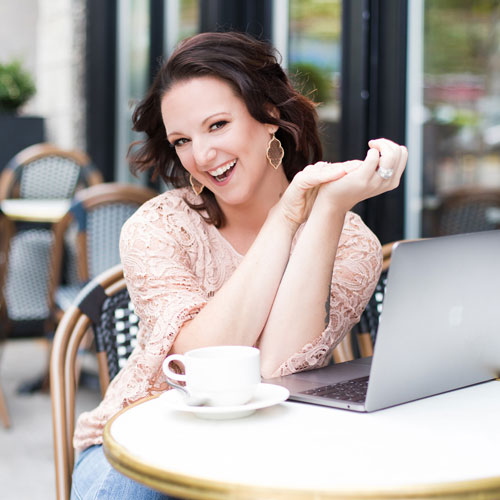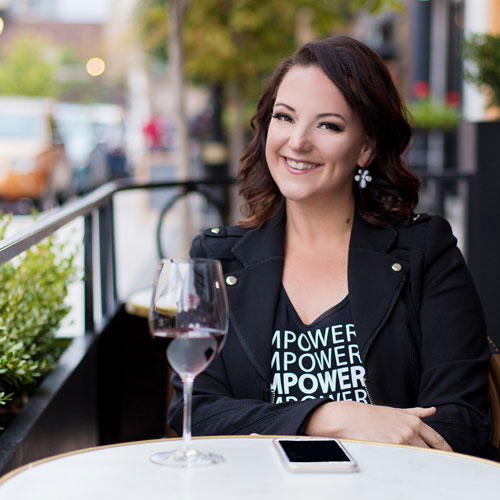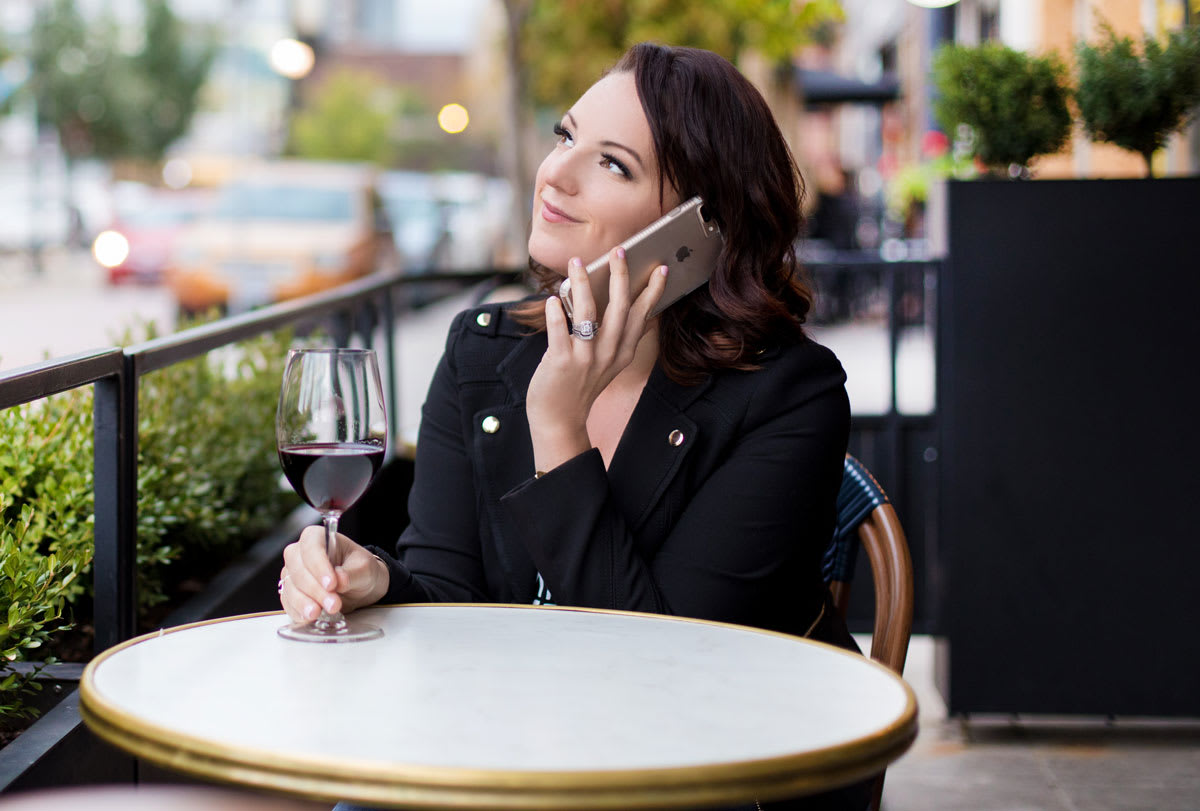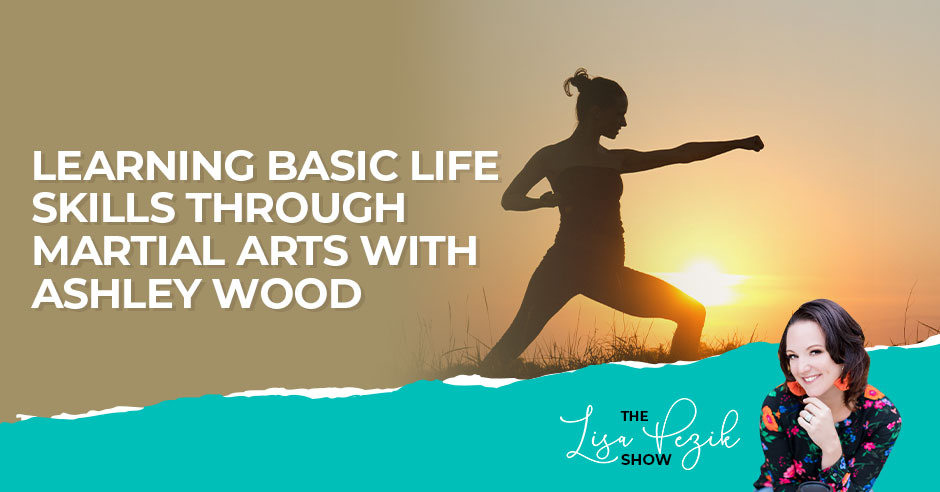
Being bullied as a kid, Sensei Ashley Wood found her voice and power when she answered a flyer and joined martial arts as a kid. It sparked her to set personal goals and in her 30's become an eight-time World Karate Champion. On today’s podcast, Ashley sits down with Lisa Pezik to talk about:
- Getting the core of what makes a bully,
- How to set big goals and work hard to make them happen,
- What to do when you want to quit,
- What the evolution parts means in their business named Evolution Martial Arts,
- Why we can't lie to kids about the dangers in the world,
- How to be a better parent, spouse, and overall human.
Ashley is the Owner/Head Instructor of Evolution Martial Arts. She’s a 5th degree karate black belt and purple belt in Brazilian Jiu jitsu ad holds multiple NASKA World Championships in creative forms, creative weapons, musical forms, and musical weapons.
---
Listen to the podcast here:
Learning Basic Life Skills Through Martial Arts With Ashley Wood
I am honored and excited to have one of my most favorite people on this planet to be on my show. I've got Ashley Wood with me. She is Oliver’s martial arts instructor. She and her husband Gord run this amazing martial arts school that gives kids confidence in not just martial arts. It stems over into how they're being in this world, how they're interacting with their teachers, friends, mom and dad, and each other. I can say that Oliver has grown much as a little man from being at their school. Ashley, thank you for being here with me.
Thank you for having me.
She is an eight-time NASKA World Champion. If you were in a dark alley and someone was going to start something with you, this is somebody you would want in your corner because she kicks butt. She's fierce. I'd seen images and videos of you kicking butt when you compete. You take no names and mean business, and it's crazy. I love that you say you're a mom and an instructor, and that is the most important thing to you. Tell me a bit about that. Why is being a mom and instructor more important than your eight-time world champion martial arts craziness?
World championships are just world championships. It's done by working hard and that's something that anybody can do. Anybody can work hard, buckle down and earn an award. To be a mom and to be an instructor you have influence on people's lives. That's why that is more important. My son and martial arts mean the world to me. Awards are awards. It's nice to have and that I always wanted to achieve, but being a mom and being an instructor gives me the opportunity to touch many different people's lives in different ways. Not everybody is able to do that opportunity.
You're good at it. You never know if you're having a rough day. Ashley has this mega-sized kidney stone. You would never know that she has this and it feels like a knife that’s jabbing her in the side and nauseousness because the way she treats the kids is consistent. That's something I know that me as an adult and my six-year-old who takes the class, it's nice to be around someone who is consistent and you know what you're going to get. That stable footing is key especially for our kids these days. What age did you start karate?
I was eight when I started karate.
How did you get into it? Tell me about that.
My whole life, my life goal was to become a Ninja Turtle. I was obsessed with Ninja Turtles since I was little. I had told my parents that my goal is to become a Ninja Turtle. My parents helped me embark on my journey of becoming a Ninja Turtle.
Did you have a specific one you wanted to be or it didn't matter?
At that time, I wanted to be Michelangelo, the nunchaku-swinging pizza-eating which I am now. We were at our local town parade and I got a flyer for martial arts. I turned to my dad and I was like, “This is the coolest thing ever.” My dad is like, “I think we need to do it.” We went there the next week. I started and never looked back. I know as soon as I walked in the door, I was like, “This is where I belong.”
You come from a supportive home. You wanted to add this curricular activity on. Was it like that at school?
When I went to school, I am like a strawberry blonde, red hair color. I got picked on for being short. I got bullied a lot. I had no confidence. At home, I was a different kid. When I went to school, I fought every day. I hated going to daycare when I was 3 and 4. I did well in school, but there were a couple of main bullies that I had to deal with. When I went to karate, I could be myself. I remember being in karate class and people would go, “Grab a partner.” Four people would run over and, “Ashley, do you want to be my partner?” I look around like, “Who, me?” The kid that nobody wants to be near at school but at karate, everybody thought I was this awesome amazing person. That's why I found my home there. I felt like I could be myself. I could be silly, goofy and still make these friendships. I felt like, “Here's my happy place. I can go to it and people love me for who I am and not have to worry about fitting in like everybody else.” It became my home. The bus driver used to drop me off at the karate school after school because that was where I love to be.
Martial arts is about standing up for yourself and defending yourself if that time comes.
Your parents were like, “Do it and go if that makes you feel good.”
My dad took martial arts when he was younger. My parents were young when they had me. When I was about 16 or 17, I remember thanking my mom and dad like, “Thank you for letting me do karate my whole life and all these sports activities.” My parents were like, “Let you? We wanted you to be in something to keep you out of trouble.” I had the most amazing parents. They're like, “You started karate. You clearly had a passion for it. You were good at it. We kept pushing you. You want to do it. Let's do it.” Without my grandma, I wouldn't be taking karate. My parents couldn't afford it at the time. My grandmother paid for karate because it was just a phase, almost many years later. She started paying for my training and she was the reason why we opened our school. She was the financial support behind our martial arts school. My grandmother was always there to support me through everything.
I think a lot about legacy in my life. What legacies am I carrying on from my family and me being a parent? What a beautiful thing for your grandma because she thought it was just a phase that this was going to morph into this.
My grandmother lived with us growing up. We were always close. She saw me wanting to become this Ninja Turtle. My grandma and my parents too knew that if I showed a passion for something that I was one of those stubborn kids. I'm not one of those that I'm going to start and then stop something. Once I found my thing, they knew it was going to be there for life. My grandma was one of those like, “If you're going to commit to it, I'm happy to support you whether it's financial or emotional.” If I was going to make the commitment, I always had my family behind me. It was the way my family works.
Did things change for you at school then when you started going to martial arts with those bullies and how you showed up at school?
At first, it didn't. I never told people that I took karate. When I got my yellow belt, my friend was all excited because her sister was training with me and she went around and told everybody at school like, “Ashley does karate and she got her yellow belt. She's going to protect me from bullies.” That's when I got quite a backlash from the bullies. They started going like, “You think you're tough? I can take you on.” I was like, “No. I don't want any trouble. I don't want to fight you. That's not what martial art is about.”
Martial art is about standing up for yourself and defending yourself if that time comes. I will never forget the first day I had to put my foot down and there was this one bully. They took my hat off and my grandpa had passed away and he was the one that gave me that hat. They threw it in a mud puddle. They came and they shoved me off some plain equipment. I remember that was my first day I stood up. I brushed myself off and I'm like, “That's enough. I am done.” The kid came at me and I bumped them once in the nose. It's not the best story to have punching another child in the nose, but that was the turning point for me. That's when people started to show a little bit different level of respect and like, “Don’t mess with her.”
Even Oliver who is six, he knows how to do a proper sidekick or a proper punch. He's not going to get angry and go around punching and kicking people or me and Eric. You've always instilled in them that martial art is a tool if you need to use it, but it's not your first tool that you pull out of your toolbox. I think that's a misconception too about martial arts. Everybody is walking around ready to pick a fight because they're tough. That's not at all what a martial art character is from what I get with what you teach at the school.
The first thing you will learn when you walk in our school is how to bow, and bowing is a sign of respect. Our style started in Japan as most martial arts styles did. They don't shake hands when they greet somebody, they bow. That's where that stems from. The number one thing about martial art is respect and treating others the way you want to be treated. It's important for us whether it's a bullying situation or not to teach our students. Number one is to show respect. You be kind. If you don't like when somebody calls you a name, you don't do it to others. When somebody pushes you, punches you, kicks you, don't do it to other people. It's that simple. I wish more people in the world understood what respect is.
In our bully program, we teach them. First, we're going to tell the bully to stop or to stay back. We're going to do everything that we can. We're going to run away, tell a teacher or tell our parents. Our last resort is using our martial arts. One of my favorite shows is Cobra Kai. It portrays the wrong thing about martial arts. I'm hoping that the next season changes. It shows that martial art is about fighting and it almost crushes Gord and I when we hear parents go, “I don't want my kid taking karate because I don't want them to learn to be aggressive and how to hurt people.” Martial arts has nothing to do with that. It’s the most passive, kind, respectful and caring people that we know. I don't want to say we're the peaceful people but we are. We are trying to do everything else, understand and care about people. The last thing we want to do is hurt anybody. We have the skills to hurt people but we do not have to.
I don't watch UFC fighting, but whenever there's a big fight and they do the weigh-in, it’s like the promo or publicity. The two competitors have to go face-to-face. There's always one competitor that's yapping in the other one's face and making this big scene. There's always the other one that you know that's going to kick the other one out. You know who's going to win when you see that.
We've trained with a lot of UFC fighters and we know a lot about ultimate fighting. The funny thing about that is I would call them athletes but I wouldn't call them martial artists. Two of our favorite UFC fighters, Lyoto Machida and Georges St-Pierre, they’re martial artists at heart. If you see the respect that they have walking into that ring for their competitor, they are martial artists. You learn jiu jitsu, boxing and these types of things, you're an athlete first because your job is to fight in this ring, where the other guys grew up as a martial artist, showing that level of respect. They do that for money, but they are martial artists. The other guys are athletes. We tell our students, “If I were to go to somebody's school and walk in the room, I should be able to point out who is a martial artist by how they act, behave and focus.” That's our top thing in karate. We should be able to see who is the kind one, who is the focused one and know that's a martial artist, the qualities that they portray.
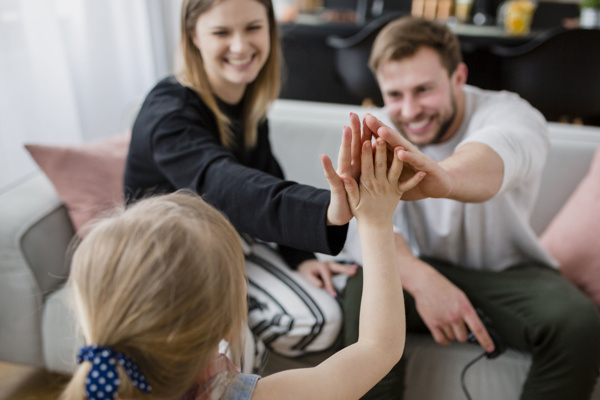
It's who they are and what kind of energy and focus they bring to even the room that they're in. I can remember right after Oliver started martial arts, he went to a birthday party of one of his friends back when we could get altogether before this time. I don't know if it was the sugar from the cake, but it was next level bonkers. The kids literally started stripping for no apparent reason. They started stripping off their shirts and weighing-in. I felt like I was watching a college frat. They were standing on the picnic tables. All these kids are whipping their shirts and jumping.
Oliver is sitting there eating his cake. He is taking a bite. He's looking at me and I'm looking at him. Even the kids who were like, “Oliver, take off your shirt.” He was like, “No. I'm not doing that.” To me, that was the lesson that I was like, “This kid is starting to learn about life and respect.” There are many times that you as a parent can say it, but when they learned that lesson from an outsider, like you were on the outside of the family unit, when a teacher, a coach, mentor or sensei can say that to them, it sticks about their focus, discipline and kindness.
Our job as instructors, we take it seriously. We don't think that we are people who just teach karate. Our goal is to teach life qualities. That's the number one thing. We always say if we get a parent who say, “My kid doesn't want to do karate anymore.” First off, your kids didn't have that decision because if I let my kids choose, he wouldn't do school anymore either. He doesn't have that choice. As a parent, we know what's good for our children and what's not. What's important for us when we're teaching those life qualities like respect, discipline and focus is that it gets followed up at home. I don't want to say that parents don't have time for their kids, but there are a lot of people who spend time doing other things rather than focusing on those qualities.
Our job is I will tell Oliver, “Be focused, be respectful and be this.” He goes, “My mom and dad had been telling me the same thing. My mom and dad are right. They know what they're talking about.” Our job is to blend with a family and help them, I don't want to say raise the best kid because we do teach adults as well, but to help that child understand like, “These are the proper qualities.” We are the foundation or the roots to let that kid grow to be the best tree that they can be. We need both the instructor and the parent to be on the same page for that.
I love how martial arts is a no-judgment place. I remember when you were teaching about bullying and you were talking about kids being left out. It’s not so much the physical bullying, but the emotional and social bullying. I remember you were saying that you should say, "That's not cool,” but then what should you do with the bully? Should you invite them to come? “I'm going to go over and play with Joe or Sally, do you want to come and play?” I thought that was such an interesting lip on being kind to the bully. I could see all of those wheels turning when you said that. I think about those bullies that took off your hat and pushed you into the mud. If you could go back now and say something to them, how do you feel about now being an adult and knowing the reason why people turn into bullies? Is there any message there or anything you would say to those kids?
Kids are hard because they're kids. I love my son and I know he's not perfect. I know that he's probably called somebody a name. What I would probably rather do is teach the parents that there are no good kids and bad kids. Often, the kid that maybe calls your child a name, maybe their life at home isn't great. Maybe they're getting bullied by another bully at school or a sibling at home. Bullies are not bad people. They make silly choices, not the smartest choices sometimes. As martial artists, I want our students to understand that it's almost our job to be respectful, but to teach them that calling somebody a name or leaving them out of the soccer game, that's not the right thing to do because maybe that child has never been told that before.
Maybe that child doesn't know, “That was mean of me to leave out Billy. They're being nice enough to invite me.” Sometimes I think it's the child that needs that education, that feeling like they fit in. Often, I find that bullies are the people who are left out the most, which is why they become angry or upset. They’re children. Children are a reflection of their environment and the people they are around. My student can be the light for that bully. For me, the person who did that when I was a kid, when I finally stood up to them, my mom made me walk to her house. They lived down the street from me. I go to their house and apologize for what I had done to their daughter and say why they did it.
I went to their house and I said like, “I'm sorry that I punched Danielle. She's been bullying me and I had enough of it.” Thankfully her parents turned around and go, “What do you mean my daughter has been a bully?” They don't know. We became friends after that incident because Danielle’s reason why she was mean to me is I was close with the other neighborhood kids and she wasn't. She felt that she was left out and she targeted me. She said, “Your fault that you're playing with all these kids and I don't have that.” After that, we were all one big group of happy friends. Going back in time, I would teach my kids and students, “You might be that change in somebody's life. Everybody has a bad week or a bad day. Maybe their life isn't as great as yours.”
It doesn't make bullying right. That's not what I'm saying. It's never right to call somebody a name or be mean, but sometimes they don't know any better. I always try to teach my students to look on the more positive side. Don't think of them as this big evil villain. They're like you and me. Sometimes they need that hand to grasp and that foundation that we have as martial artists. Often they're missing that. I know that was long-winded.
Even as adults, we've been around people who are snarky or don't treat us kindly or people that you don't jive with or that you feel like they have it out for you. Everybody has a story. Everybody has something they're going through or something they're dealing with. We don't know why they're acting out that way.
We talked about, “If somebody came up to you and they were angry or they had their fist up, how would you react?” Everybody answers, “I'd either put my fist up or I'd tell them to stay back.” I said, “What if somebody came up to you maybe not during COVID, but want to shake your hand and be like, ‘I'm so-and-so. It’s nice to meet you?’ Right away, your reaction would be kind and caring. What if that person who came up to you is all angry with their hands up, and rather than taking a stand back, what if you were the one to go, "I'm Ashley. It’s nice to meet you," how would that change their whole demeanor? People do have bad days. If we constantly judge a book by the cover, if you've seen me on one of my bad days, you would look at me and be like, “I'm not training with her.” You didn't give me the chance to get to know me. It’s important that both our adults and our kid students know that we need to approach things maybe different than everybody else would.
When I tell people how much I love that Oliver comes to your school, it's like 70% the message and 30% the actual physical. The kids love like you were teaching them the dragon whip kick and he loves to look cool. They're kids. They love to do the cool tricks and learn the techniques. It's the messaging because at his age, they’re such sponges. There’s a science that seven and under are soaking up every interaction, every message, every gesture and everything. They're moldable at this age. I love that he has that positive.
The number one thing about martial arts is respect and treating others the way you want to be treated.
Your school is called Evolution Martial Arts. I have my take on that, but I'll let you tell them your take. People always ask me, “You do martial arts. What kind?” I'm like, “I don't know. I do a little bit of everything.” I’m like, “They do that for the kids, they do the bullying, the abduction proofing and then they do the technique. With the adults, we do a little bit of this and that.” Tell them about how that came about. Tell them about what you do for the kids. Let's start there. Tell them how you structure the curriculum for the kids or what the kids get.
First off, thank you for calling us a school. A lot of people call us a club. We are not a club. We are a school. We're a place of learning. The way we describe ourselves as instructors. I am not a karate instructor. I am but we teach life skills through martial arts. Those life skills that your mom and dad always teach you how to be a good person, we teach you that. We throw in some karate moves because it's cool, physical, fitness and fun.
Our underlying, which we love because the kids always get it. The kids look at, “I know cool karate.” When I did Oliver's class, I’m like, “I'm going to put a cool song on. Show me your coolest karate moves, but when I pause the music, you have to freeze.” They're going, “I'm doing cool karate moves.” We're teaching them, “Now you have to focus.” We try to connect to those. For our kids, we focus on our life skills first through martial arts. They don't know they're getting it because if you're going to go to a place that you learn respect, focus and discipline, they'd be like, “Boring.” We teach it in a fun and cool way.
What we do for them is a modern style of martial arts. For the little guys, it's about having fun. You don't have to be perfect at anything. Are you trying hard? Are you giving 100%? That's what matters? Over time, you're going to learn how to do a proper palm, heel strike or a proper punch. I can teach you that. What I can't teach you is effort. I can't teach you how to give your best. That's what we look for in the little guys. As for style, those guys do a little bit of everything. It's important that they get bully proofing, abduction proofing, some modern karate, some traditional karate and some ground defenses.
Abduction proofing, is that normal in martial arts schools?
In good schools, yes because we don't like to say that our society is perfect. Unfortunately, if we teach kids that everybody is nice and everything, we're lying to them. Abduction proofing is our way of saying that stranger danger. We’re teaching them in an appropriate child learning way. We give them code names to make it easy for the child to remember. The gift giver tries to trick you by giving you gifts because they need to be aware.
They need to be aware that not everybody is like mom or dad or my best friend's parents. It's rare but I'd rather my student be safe than sorry. I'd rather them be prepared for it. As a parent, I hate to think that could happen to my child but it's out there, unfortunately. It is important that all of our students, from three all the way up to even the adult class, we teach them abduction proofing because it is separate from bullies. It doesn't matter how awesome Oliver's sidekick is in karate, it's not going to work against a stranger. He has to use his mind first. Teaching them that thinking come first over your physical techniques is important for them to know.
I remember asking Oliver, “Do you learn this at school?” He's like, “No.” It’s struck me. You never want to know that your kid could ever be in that scenario. I feel like that's such a message that kids need to know. It's not always the stranger sometimes. The biggest part of that message that jumped out when you talk though is when you were like, “Oliver, you know me. Can you help me grab these boxes from my car? Can you come with me?” When he was first learning at four, he was shaking his head like, “Yes, right.” You're like, “No, we never go anywhere with anyone without parent's permission.” That was huge because sadly, a lot of times, not great situations happen with family members, friends of the family or the other parents.
It’s more common than stranger danger.
I think the kids learn stranger danger at school, but they don't always learn that people they know could potentially harm them.
You already had me say our number one rule, but our stranger or abduction proofing, we got it from a guy we trained with years ago out of the US and he's an amazing martial artist. He came up with this. He calls it the steel proof masters. That's what we use at our school. It's the idea of we're teaching about strangers that nobody you ever know, but know that we have the definition of a stranger. The definition of a stranger is anyone you don't know even if you've seen them before. If you have the same person walk their dog past your house every single day, you wave to them and you say hi, they're still a stranger to you. Teach the kids that, “You do talk to strangers. You go to Walmart and you say hi to the person behind the counter. You're talking to a stranger.”
Knowing that, “That's okay but we don't go with the stranger.” Nobody wants to teach their child the evils of this world. We can’t lie to them about that because we're not doing them any justice by lying to them. We need them to know that, “It might be your best friend's uncle who wants you to play a game that you don't feel comfortable playing. It's okay for you to say no to an adult.” Teach them that confidence and that power to do so because a lot of them are like, “No, you don't want to teach them that. You can't tell them that.” You have to tell them. We highly value honesty with our children and with all of our students. If any martial arts instructor says to you, “This self-defense will work 100% of the time,” they're lying to you. We're not perfect as martial arts instructors. I'm not perfect. If you ask me a question, I don't know the answer. I'll be honest with you that I don’t know and I'll try to find out for you. I think honesty is huge.

What I love about it is their own body awareness, what they like and what they don't like. I remember Eric's mom telling me that the one time Papa was poking Oliver or doing something like trying to be silly and he was poking up or tickling it and doing something. Oliver looked right at him and said, “Papa, I don't like when you do that to me. Please don't do that.” In my day and age, you were never allowed to say that. You had to, “Hug at Sally and Uncle Joe. Anybody could touch you.” I like that karate gives them that awareness to say, “I'm not comfortable with you doing that. Please don't do that.” They get that awareness of their own body.
It’s that confidence. What bothers me is back when we grew up. I remember all my grandma's friends and it's like, “You don't call them by their first name.” Back in the day, adults were here and children were down here. Our personal thought is children deserve to be treated like we are, maybe not in the same language that we use or anything, but children should be on the same level as an adult. They’re learning and growing. They need to learn to be responsible for their words and their actions. At the same time, they need to be able to have, “If you don't like when somebody is poking you, if it's an adult, you have the right to say no.” Adults need to learn to respect that. They are person like you and me. Kids need to build that confidence and understand that.
You're not going to go like, “No, teacher. I don't feel comfortable doing my homework.” It's going to have consequences. “No, mom, I don't feel comfortable cleaning my room.” That’s not going to go over well. When it comes to your physical being or somebody saying something to you, you have the right to stand up for yourself, to tell them to stop poking, to tell them to stop calling you a name. Children are humans like us. They need to be treated accordingly. That's my personal opinion. The way I treat Oliver is the same way I'm going to treat you in class. I'm on that same level as you. I'm not up here. I am a person like you.
This is like a parenting how-to. Not that we have all the answers or we always do it right, but there are many lessons from martial arts from you that we bring into our own family and even the adult. Kids, you could say but they watch what you do. Readers, for those of you that don't know, I do martial arts and Oliver bribed me into it because Ashley quietly coyly said, “We're doing this parent special where you can do three months free, tell your parents.” Oliver was like, “My mom is going to do it.” I was casually saying, “That would be cool. That might be fun.”
That turned into him raising his hand in class saying, “My mom is going to do it.” I'm like, “I’m going to do it.” As a human being, I've grown so much stepping out of my comfort zone and doing things that scare me. I couldn't find a more supportive community to do it. I had this vision that black belts were these crazy, mean, going to kick your butt, “I'm much better than you.” That's the world I grew up in. I felt like there was this division of status when you're a certain belt. I'll tell you that the black belts treat me no differently being an advanced orange belt that I am.
Everybody is super supportive. I personally love it. I love it that Oliver and I do it together. You do something interesting, which I don't know if many schools do this, but we do self-defense. That is the scariest and best part for me because I hope to God I never have to use it, but I feel empowered to know that as someone's coming at me with a gun or a knife or trying to choke me or something, I know how to protect myself and my family to the best of my ability. In the adult curriculum, it's a mix of a whole bunch of stuff. How did that come into play when you developed the adult program?
We've trained in both traditional martial arts, jiu jitsu, Commando Krav Maga, kickboxing, we've done different styles. When we decided to open our school, we picked the word ‘evolution’ because things are always changing. As we found out in 2020 with COVID, things change and we need to evolve and adapt. Rather than picking one style of martial arts, we're combining everything that we love about each style. We take what we love from traditional karate, modern karate, jiu jitsu, Krav and all these different styles and combining it to create our own so that everybody gets a little bit of something. For our adult class, we focus on reality self-defense like guns, knives and sticks.
We don't start that until age fourteen at our school. We want it to be empowering. It is a little nerve-wracking sometimes. For me, doing it for so long, I don't always see that. It's something that we want whether you're a white belt or a black belt, we want you to be able to be confident in defending yourself and your family. Most schools don't do weapon defenses. We combine it with ours because we do feel it's important. Our system is structured so that you want to learn the most common attacks first, as you get higher up in belts, the least common attacks. That's the way we do it at our school.
You were saying those scary black belt things. I couldn't say more things about our black belts. They're kind, caring and supportive. That's what we want our school to be. We often refer to our school as a family and that's what we want. We celebrate each other's successes. We're there to help each other through our challenges whether it be a martial arts thing or a life thing. We try to be there for each other. It's important for us that our students know that. Our black belts are like Gord and I, the instructors, because when you start karate, we almost become like your karate mom and dad. Whether you're three years old or you're an adult, we're there to help you and guide you.
I believe in you and sometimes you don't believe in yourself. The most challenging class for me to teach are not the little three-year-old which people always are afraid of. As an adult, we always feel like, “This is me as an adult, I've grown up and I am here and that's who I will forever be.” We need to learn that that's not true. We can be so much more than what we give ourselves credit for it. I didn't earn my world championships until I was 33 years old. There's time to learn, to grow and become more than you ever expected. When I walk into my adult class, I don't want to say I treat them like my children, but I'm there to constantly go, “You can do it. I believe in you. You got this.”
We're often not told that. We're always told as an adult, “You're an adult, fend for yourself.” I love when I get an adult student who let me give them like a squeeze on the shoulder and go like, “You can do this.” That's why I feel like I want to build that adult program. I want people to know that like, “You didn't start when you were 8 or 6. You started when you were 35, 36, 40. Improve yourself. You can become better.” We are doing it for Oliver because he wants that cool mom who does karate, but you're learning through the development of your skills that you can do it.
Now you're starting to do it for yourself. It always usually starts with that kick in the butt from somebody. Learning that you're doing it for yourself, it changes you. For me, my dream, I always wanted to earn world championships. I'll never be able to do that and it wasn't until Gord, my husband, said, “It's time to make it happen.” I'm like, “I can't do it. I'm not good enough.” He's like, “Look at you. I am behind you 100%. You can be a world champion. You’ve got to work for it, but you can do it.” I felt like a little kid again. “I'm going to learn something new and I'm going to work hard.” That sense of accomplishment is huge. As adults, we always feel like there's nothing more to accomplish. It frustrates me as an instructor. The hardest part is getting that adult in that room. Learning that they have something to build and grow on, it's an amazing thing.
You don't have to be perfect at anything. What matters is you’re trying hard and giving your 100%.
We forget as adults how to give ourselves that grace. That's what I find when I do it because I never did martial arts. I never grew up with it. I don't know anybody that's done it until now. Oliver got upset because he couldn't get his nunchakus right. I'm like, “I'm an adult and I go through the same thing as you.” We forget that it's a new skill and hand-eye coordination. It’s a new way to move your body and mindset thing.
It's not just forgetting. It's not allowing ourselves. A lot of people brush things off because they think, “I can't do it.” They don't give themselves that time, that opportunity to learn and to do something different. Adults need confidence more than children sometimes. We sometimes feel that way. There's more that we can do to give ourselves the chance to be better.
We want our kids to set all these goals, achievements and accomplishments. We're the same. We're no different. We're here.
The way we look at it is a black belt is not something you earn. It's somebody that you become. It’s truly a journey. They're not like I hop, skip, jump and I've got my belt. It means more than that. You're like, “You're doing a good job. Keep it going. Keep that train going. You're doing it.” When I have a student go from their white belt to their black belt, we always say, “No two journeys are the same.” We have different challenges. We have different things and different ways. We learn different opportunities that are there for us. No two journeys are the same because it is who you become as a person. Martial arts is very individual. It's about growing yourself. Oliver’s black belt is going to be different and mean different than your black belt, from my black belt and Gord's black belt, and Sammy, Isadore and all these other people. Everybody's journey is different. That's okay to give yourself the opportunity to do that.
That's one thing when I come into class. What keeps me coming is that I know that you're not testing me on the person next to me. You're testing me on did I get better from the last strike, from the last belt, from the last test? Am I showing improvement? I'm only competing against myself. There are standards and things you have to get and know, but I find you provide that place to be yourself, give yourself grace, push for something and grow in a supportive way.
We will never compare one student to another. We want to have models that we will look up to. You want to be awesome like Sensei Chris or you want to be flipping around on a professional martial arts team like Sensei Gavin. We can look up to them, admire and want to be like that, but we never will compare one student to the other. I think it’s sometimes the flaw in other things that we do is being compared to one set standard. We are not the same person. We should not be on the same comparison. I will teach you the same curriculum as I will teach another student and they're both going to be different. It's the same curriculum but it's different. That's why as an instructor, we're given that opportunity to get to know you.
I know what you're capable of and I know what your limits are and what I can push you to just like I would any of my other students. Everybody's a bit different. I can be a little bit harder on some than others. There were some who are more hardcore and demanding instructor, and they'll get that. It's very individual. If I have a row of apples, every apple is different. They're different in slightly different ways, but they're all different apples. We don’t compare them from one to another.
I love that metaphor about the popcorn. You put it in but the kernels pop at different times. We see that as kids and adults. It's true. The future for you, you are going to continue doing online even when we're back to be full. You have the in-person and socially distant. Your school was already crazy in a good way with the infection control practices. You’re having, Sensei Ashley and Gord, little dude Chance who got cystic fibrosis. He's a little warrior and he's the best. You were already cognizant of germs, sicknesses and don't come to class when you're sick. Are you going to continue with the online component?
We are hoping to. I stay home to protect Chance to keep his risk down. I'm exclusively online and Gord is exclusively at the school. What we had done in the past is we would alternate days. We each had our teaching days and we each had our Chance days. It's a little different now. For the future, we find that a lot of people like the online learning. We hope in the future to continue to provide both in class and online. The online we hope to expand across the world with seminars, with online programs. We've always considered ourselves this little mom-and-pop. In 2014 was the first time we took our school to a world championship tournament. This little mom-and-pop, nobody knows who we are, a school from Ancaster, Ontario. All of a sudden it was like, "Sensei, I got a world championship. This person is going to be on stage.”
We looked at each other and we're like, “We're better than we think we are. We have something that others don't.” That was our first eye-opening experience because we don't consider ourselves by no means the best in the world, but people believe in us more than sometimes we believe in ourselves. We've had our eyes open in this last little bit from people like yourself and Eric who let us know, “You got more to offer than maybe you think you do.” We do plan on expanding our program and being able to share our knowledge with the world because we have a passion for it. We've got something to offer and we finally got that through our head. Rather than focusing on our little community of Ancaster, we can share our knowledge and our passion with the world.
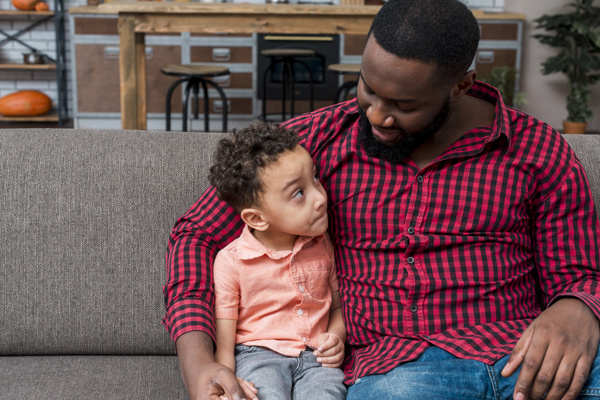
That's exciting to me because it's not just about having a business. It's bringing confidence to those kids and adults who need it, and teaching abduction proofing, bully proofing, empowering people and giving them that opportunity to believe in themselves. That's a big thing for me. It's not just about karate and business. It's about changing people's lives. If I can do it to the 150 people at my school, I can do it to 150,000 people around the world. It's crazy to think but I'm all for it. We do want to do that into a computer near you.
Readers, I've already got the wheels turning. You will definitely be seeing programs from them. We are going to be working together. I hope you soak this up and took those lessons and gems from Ashley. The way that you parent, you teach, you model and it's true that you have this humility and humble nature to the way that you do it that is inspiring. As a parent, you always want to know that where you send your kids or where they go is an extension of what you were teaching and your values.
We're family. We're an extension of your family.
Eric and I felt that from the first second that we stepped in the school. We knew we wanted it over there and we wanted to be a part of it. I know that when it goes bigger, the other people are going to want to be a part of it. That's what helps us put our head on the pillow and sleep good at night to know that our kids are in the hands of you and Gord. We'll have to have you back on again. Husband and wife team that are crushing it and heart that is in the right place. That's what you want. Where can they find you, your programs and all your good stuff online?
It’s on our website, EvolutionMartialArts.ca. You can take a look at all the different things that we offer on there. When we start up our online program, we'll have a link from the website to anything else we provide. It’s easy to find us.
Ashley, thank you for taking your time.
I always love talking to you as a friend and thank you for thinking of me once again. I appreciate everything that you do.
Readers, thank you for tuning in to the show and we'll see you again soon. Bye for now.
Important Links:
About Ashley Woods
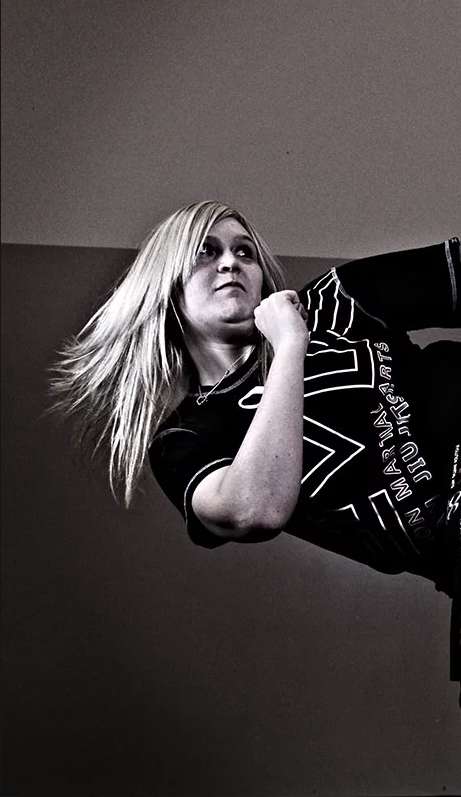
With over 20 years of teaching experience, Sensei Ashley loves to share her knowledge with all ages!
- 5th degree karate black belt, purple belt in Brazilian Jiu jitsu
- Proud member of Team AKA (professional martial arts team)
- Head of Team Evolution - our competition team
- Head of our TNT (Tricking and Tumbling) program
- Certified gymnastics coach
- Holds multiple NASKA World Championships in creative forms, creative weapons, musical forms and musical weapons
Favourite thing about teaching - to be able to watch her students grow, learn, and become the best versions of themselves!

